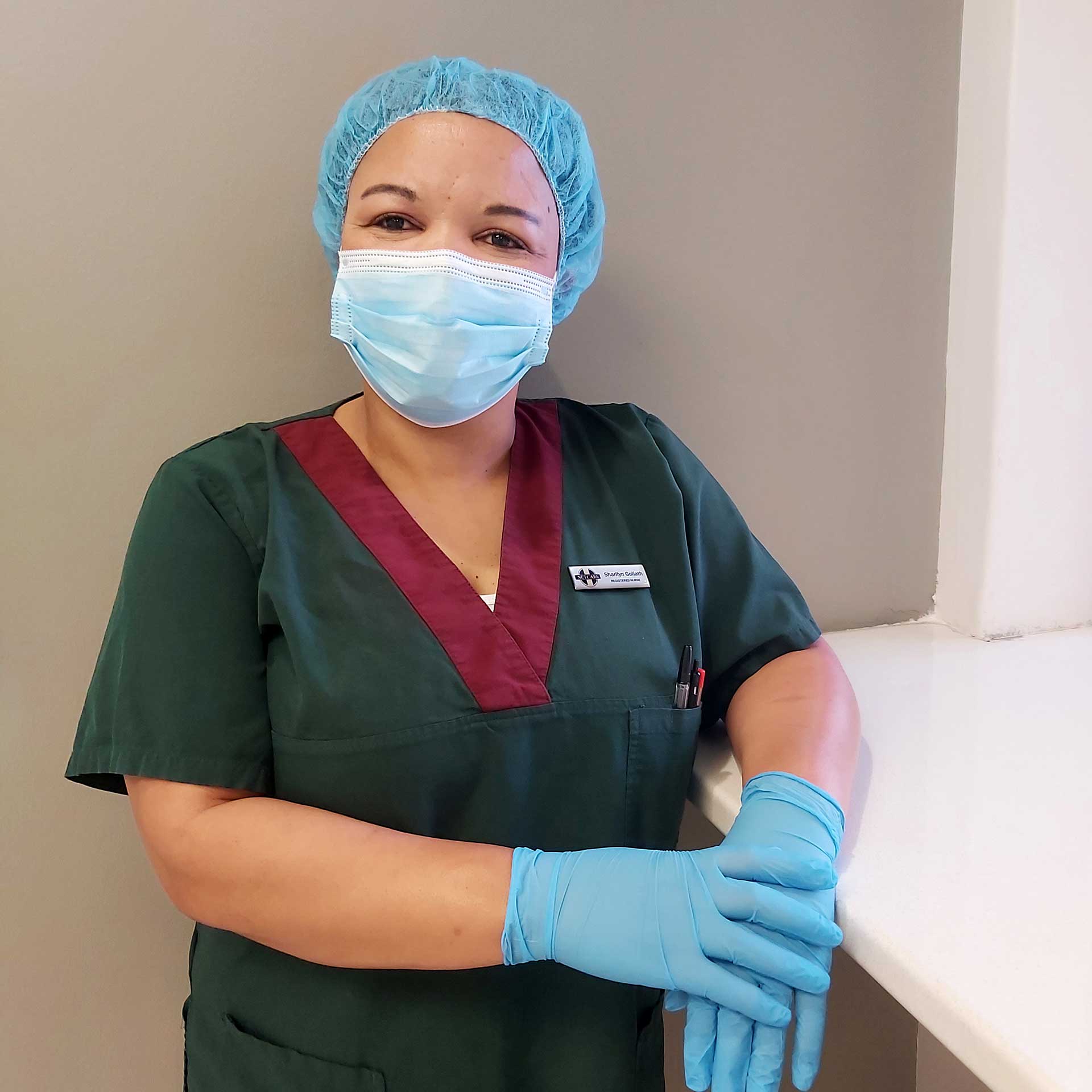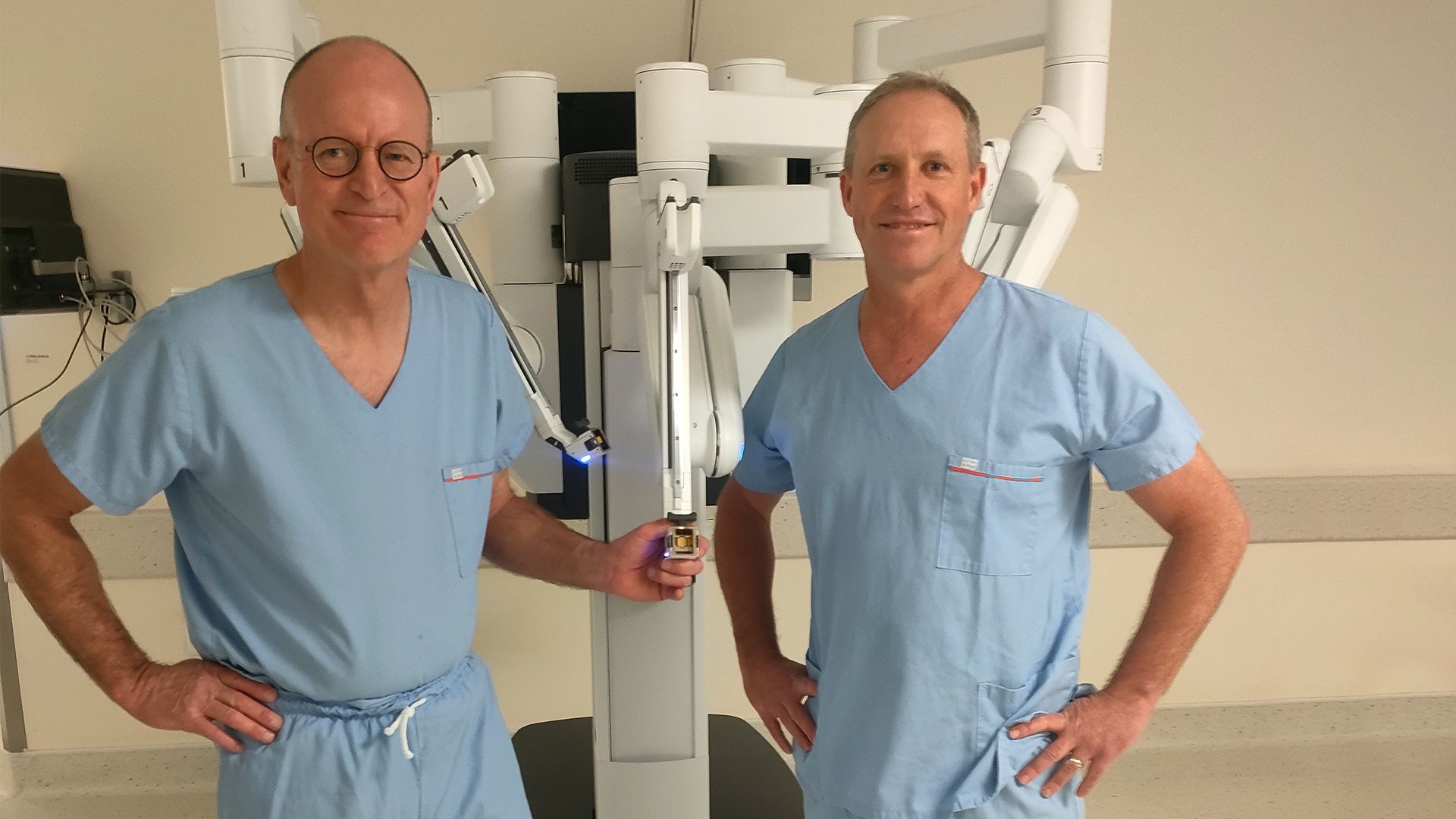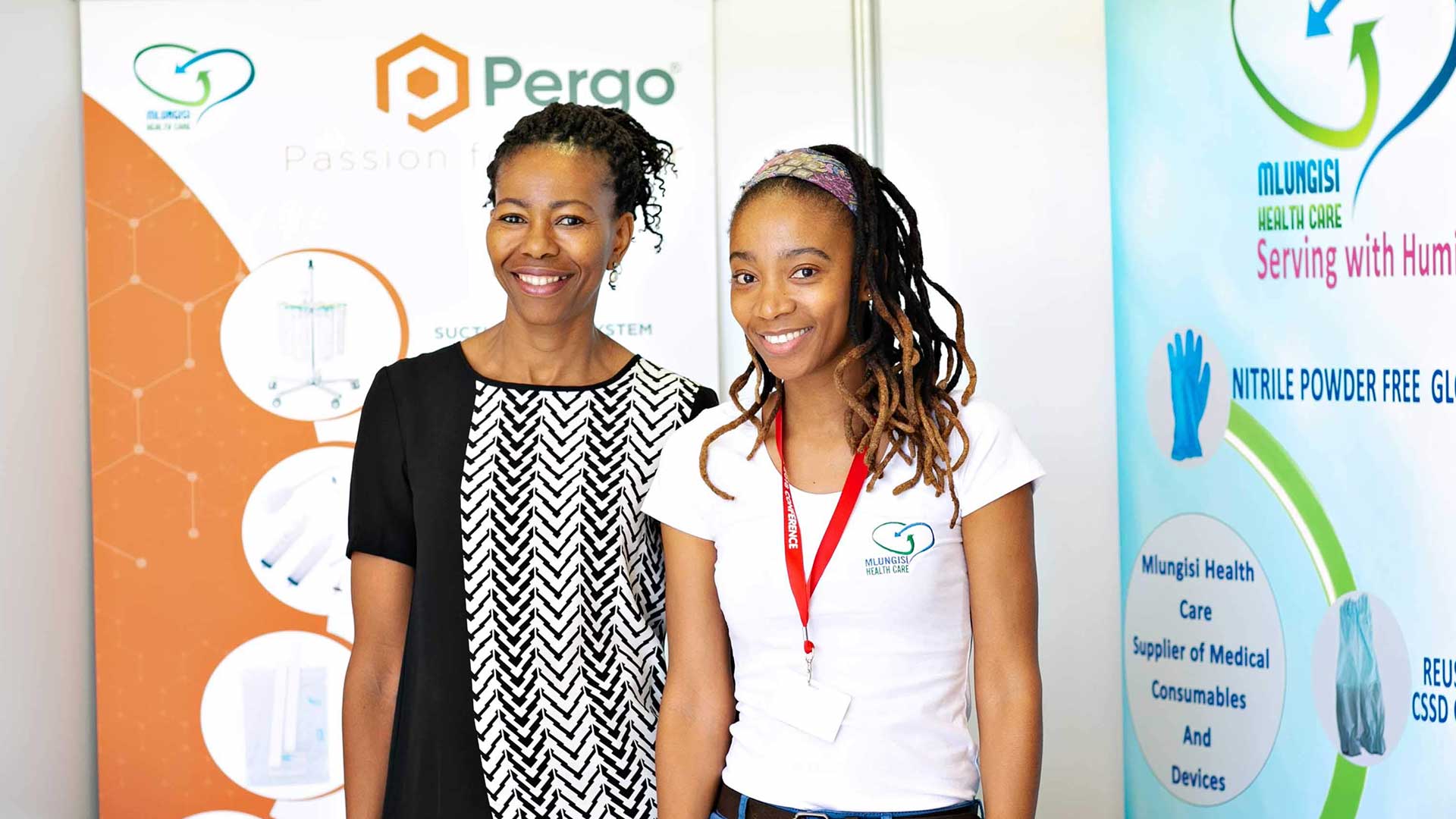Robotics turning the tables on prostate cancer
Urologists Dr Hannes Brummer and Dr Johan Coetzee are pictured with the latest da Vinci X robotic surgical system recently installed at Netcare Greenacres Hospital.
State-of-the-art da Vinci X now in E Cape
The high precision of robotic assisted surgery for localised prostate cancer is redefining the quality of life for men, with the latest fourth generation da Vinci X robotic surgery system installed at Netcare Greenacres Hospital, bringing this state-of-the-art technology to the Eastern Cape.
“There is no going back now – robotic surgery is advancing to such an extent that we can turn the tables on prostate cancer by completely removing cancerous tissue while sparing the nerves controlling erectile function and urinary continence and with minimal time off work needed for the patient,” says Dr Hannes Brummer, a urologist practising at Netcare Greenacres Hospital.
Dr Brummer and fellow urologist Dr Johan Coetzee have completed over 650 robotic assisted prostatectomies at the hospital since 2017 with a previous model of the da Vinci system.
“One of the major obstacles to early detection of prostate cancer is that men often don’t proactively go for regular screenings, sometimes out of fear for what the consequences may be. These days, if prostate cancer is detected early before it has spread, it is a curable disease,” Dr Coetzee says.
“With the robotic approach, a prostatectomy is a minimally invasive procedure that no longer needs to be a major disruption to life. The incidence of prostate cancer is rising, and we appreciate Netcare investing in highly sophisticated equipment so that we can offer surgical options that are comparable with the best technology available anywhere in the world, right here in the Eastern Cape.”
“When we started using the first da Vinci system six years ago, we were blown away by its capacity to enhance the surgeon’s control and accuracy. Now, we are seeing a further step forward in the technology far beyond what we could have imagined a few years ago,” Dr Brummer adds.
The new da Vinci X enables the surgeon to operate using slender instruments more dexterous than the human hand through tiny punctures in the skin. This robotic system has further enhanced magnified 3D imaging capabilities, with a large fixed-focus area at the highest resolution, making the nerves, blood vessels and tumour visible with even greater clarity than before.
The team had special training to become familiar with the enhanced features of this flagship version of the surgical system, and “the transition has been very slick”, according to Dr Coetzee.
The evolution of the da Vinci system and its capabilities are opening possibilities for other surgical applications higher in the abdomen, including partial nephrectomy. A partial nephrectomy, also called “kidney-sparing” surgery, is where surgeons remove diseased tissue, or a tumour, from a kidney while retaining as much healthy kidney tissue as possible.
“Laparoscopic partial nephrectomies are highly technical, and we can see great potential for robotic assisted surgery to refine this procedure, and others, in future,” he says.
Dr Louis van der Hoven, Netcare’s Cape regional manager, congratulated Dr Brummer and Dr Coetzee on completing their training to further develop robotic surgery options for urology in the Eastern Cape and neighbouring provinces.
“The power of technology to augment what is humanly possible is bringing a new dimension to doctors' expertise and surgical skill. We are thankful to Dr Bummer and Dr Coetzee for keeping abreast of these latest developments for the benefit of the patients we serve,” Dr Van der Hoven concludes.













